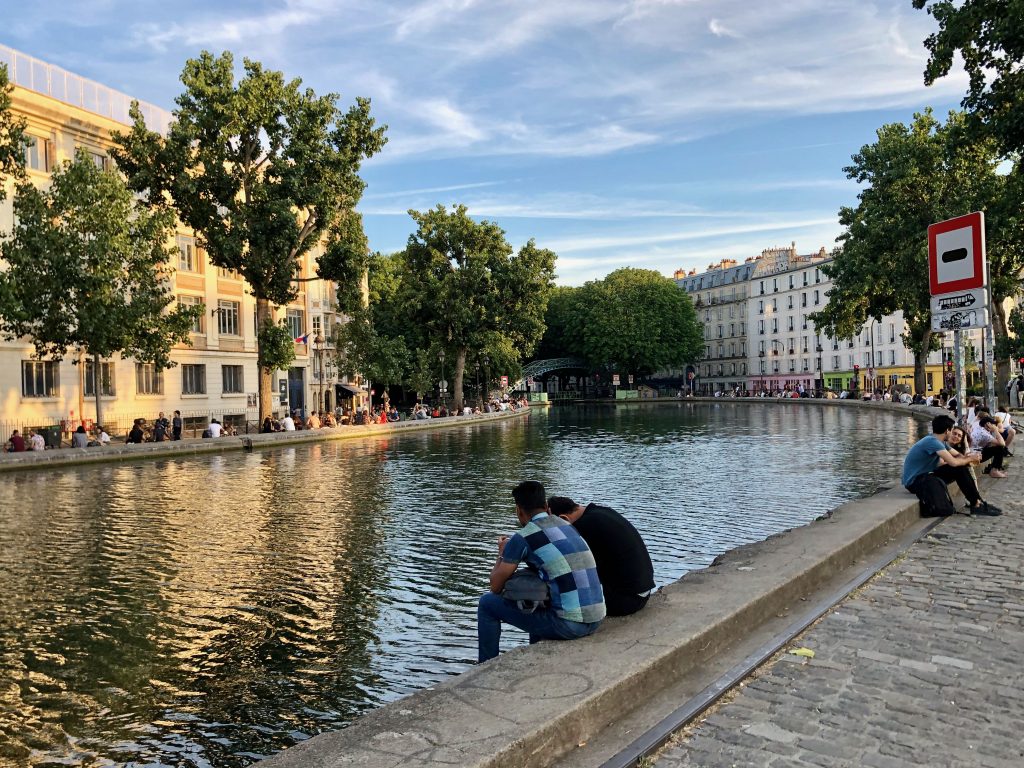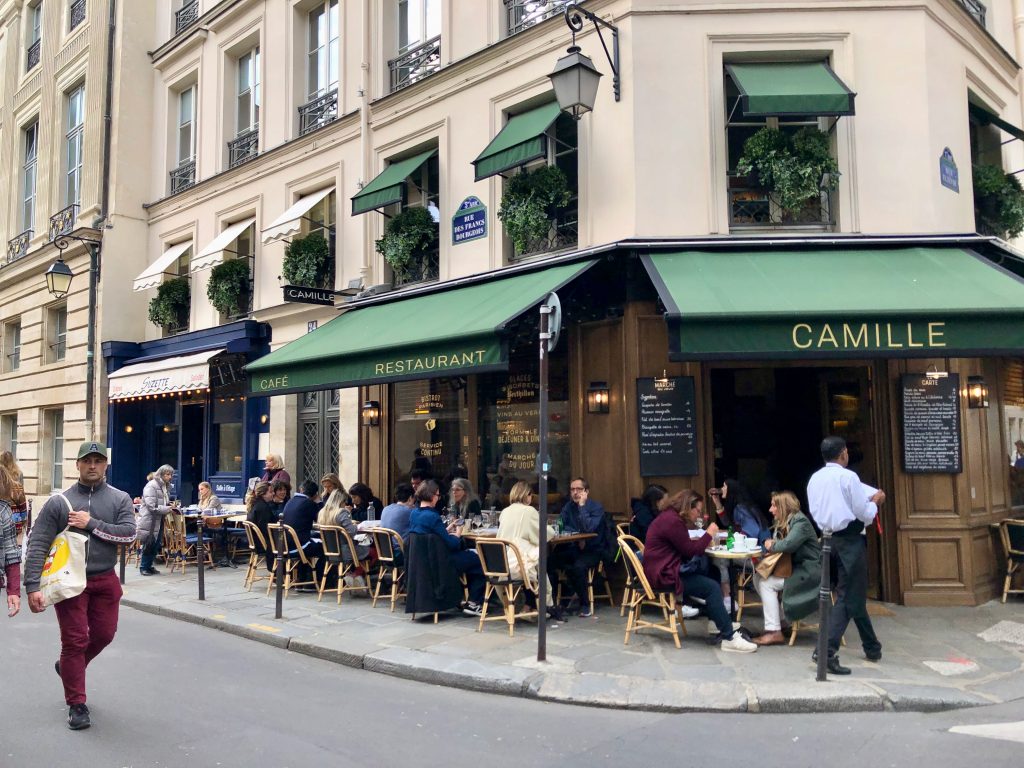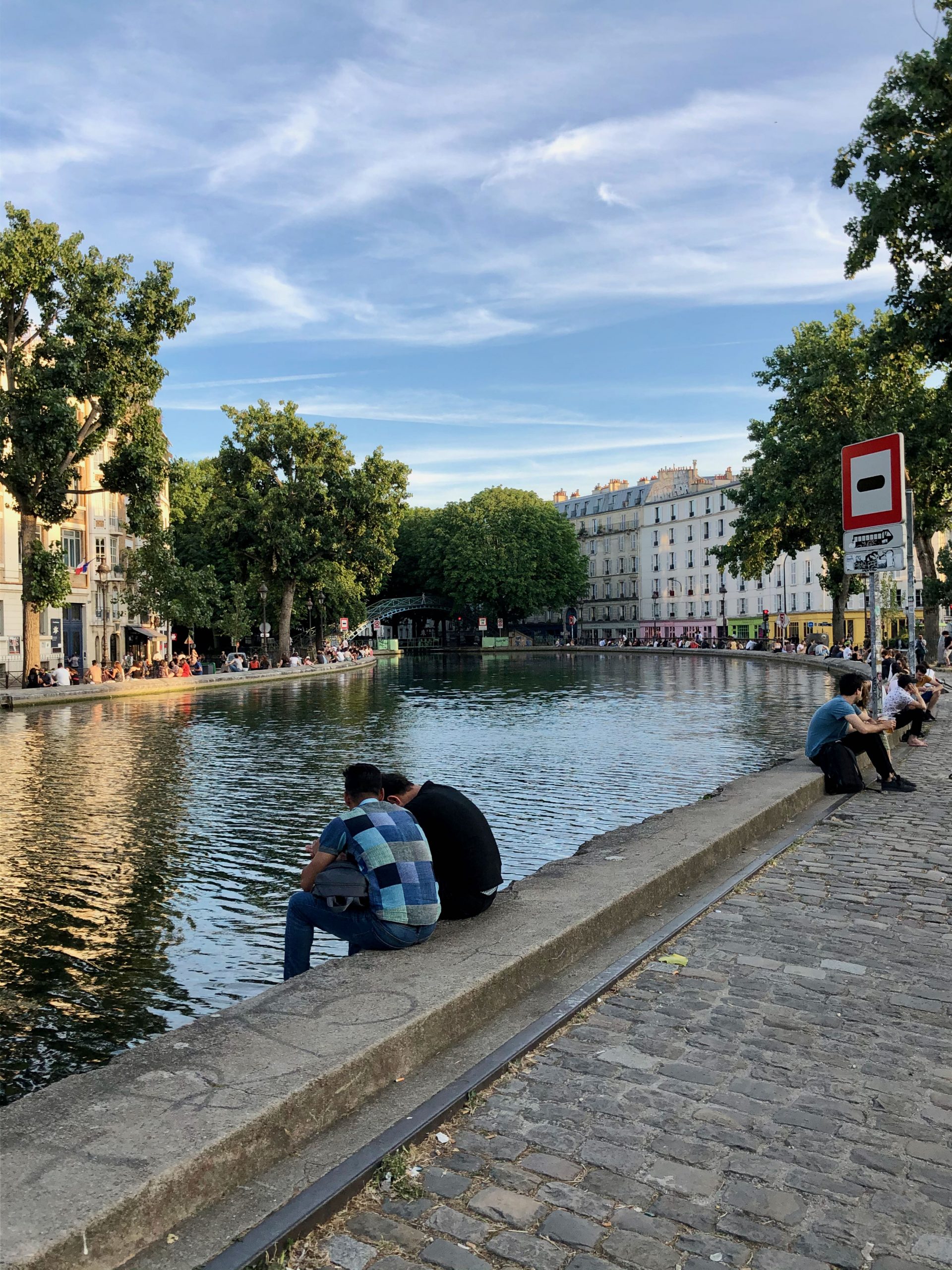This post may contain affiliate links, meaning that if you click and make a purchase, I may earn a commission at no additional cost to you. Read the full disclosure here.
This is a sponsored post written in collaboration with Lingoda. As always, all opinions are my own.
Have you been studying French for a while but you struggle to speak the language? Whether you’ve been taking classes or studying on your own, it can be incredibly frustrating to put in the effort and not see the results that you are hoping for. If you still can’t speak French even after years of study, you’re not alone and it’s not too late to do something about it. Here are some things that are holding you back from your goal of French fluency.

Language learning is challenging.
Consider how much time you spent learning your native language. From the time of birth, you had hours upon hours immersed in your maternal language with opportunities to hear authentic speech, practice out loud, and get feedback from the world around you.
Language learning isn’t something that happens overnight. It is difficult to learn another language, and when it comes to a second language, we often don’t have as many chances to practice. Too frequently, we have unrealistic expectations about our growth in another language, and we don’t give ourselves grace to make mistakes. Comparing your second language abilities to your first language abilities is a recipe for disappointment.
Have you really allowed yourself enough time to learn or are you judging your progress after putting in just a little time here and there? Adjusting your perspective will help you stay motivated, and investing in a language program can be a good method for achieving consistency with your learning.
French pronunciation is whack.
The French language is undeniably beautiful, but someone had a little too much vin while they were making up these pronunciation rules (and the exceptions to go along with them!). The written language doesn’t look at all how it sounds. Roughly half of the letters in any given word are silent 😅
I’d like to know who decided that when it’s one egg, un œuf, we’re going to pronounce the F, but when it’s more than one egg, des œufs, the F and the S are both going to be silent? Who thought that that would be logical?

This is precisely why it’s essential to make sure that your chosen learning program has an audio component. Learning the rhythm of the language, where to put the stress when speaking, and the general pronunciation can only be learned from listening and speaking. It’s also important to recognize that certain French sound formations are going to be more or less difficult depending on the sounds that exist in your native language.
Your language study method is emphasizing the wrong things.
PSA: Verb conjugations don’t matter nearly as much as your high school French teacher would like you to believe (says the former French teacher). This is especially true for French since many of the conjugations are literally pronounced the same despite their different spellings.
In most cases, it’s far more important to pronounce a word correctly than to write it correctly. As an example, if you write “tu aimes” (you like) without the S, you’ll still be understood, but if you pronounce it “too aim-eez”, the person you’re communicating with is going to be scratching their head.
Of course, grammar and vocabulary are necessary stepping stones to learning a foreign language, and we all have to start somewhere. However, if you’re memorizing grammar rules and lists of vocabulary simply because that’s what’s next in your textbook, you’re wasting headspace and time on content that isn’t directly valuable to you.
Target grammar and vocabulary based on your personal goals and interests, and consider a task-based approach to learning. Language is a tool that needs to be used in context. It’s great that you’ve memorized your list of fruits and vegetables, but can you effectively speak with a vendor at a market and obtain everything you need off your grocery list in the right sizes and quantities?
➡️ Lingoda, an online language school, covers topics like this in their interactive lessons.
French people don’t speak how they do in textbooks.
The textbooks and accompanying materials targeting world language learners are watered down to make them more easily accessible. Additionally, the vocabulary included is sometimes outdated and/or shockingly irrelevant.
If you’ve studied French for any length of time, you’ll undoubtedly have come across the expression “je voudrais.” It’s often presented in the café/restaurant unit as the main way to order food and drink in French. I can name at least 3 other expressions a French person is more likely to use before they ever say “je voudrais.”

Simply put, native French speakers don’t talk the way they supposedly do in your textbook or the accompanying videos that are created for you. As a result, most people are bewildered when they travel to France after years of study and have difficulty understanding the locals even in the simplest of interactions.
While these learning materials have their time and place, there is absolutely no reason why there should be any delay in incorporating authentic text and audio right from the beginning of your language learning journey. Engaging with authentic materials and native speakers will give you more confidence in the long run.
You’re cobbling together various resources.
Between Youtube, podcasts, websites, and phone apps, there is a lot of free content available online to learn French. Some of these resources are great supplements to your learning, but they can’t replace the benefits of a language program combining a well-developed curriculum and personalized guidance from teachers.
If you’re ready to level up your language learning, it’s time for you to check out Lingoda. Lingoda is an online language school that focuses on communication first. Their hour-long lessons are taught in an immersion style by native speakers who are also well-trained world language teachers. With small group sizes (5 students max), you’ll have opportunities to use the language right from Day 1, and you’ll get individualized feedback from the teacher in every class.
Sign up for a 7-day trial of Lingoda and take 3 group lessons or 1 private lesson completely free of charge. If you decide to continue, use ELLEN30 for 30% off your first payment.
Learning to speak French requires actually speaking French.
Too often, I see people putting off speaking a foreign language and avoiding opportunities to put what they’ve learned into practice because they feel that they are not ready. You’re ready.
Friendly reminder…
- Ça va?
- Oui, ça va. Et toi?
- Oui, ça va.
…is a full conversation in French.
Conversations can and should happen at every level. By avoiding speaking French, you are doing yourself a disservice and slowing down your progress to fluency.
You can’t get better at speaking a language without actually speaking the language. It’s a skill that needs time to develop. Thinking on your feet, figuring out what to do when you don’t have exactly the right vocabulary, and focusing on communication over perfection all get easier with practice.
For many people, this requires getting out of their comfort zone and leaving behind the textbook exercises in favor of something more challenging but ultimately, more rewarding. Find a conversation group, chat with a language exchange partner, or sign up for French classes where there’s an emphasis on communication, such as those offered by Lingoda.
What’s keeping you from speaking French?
